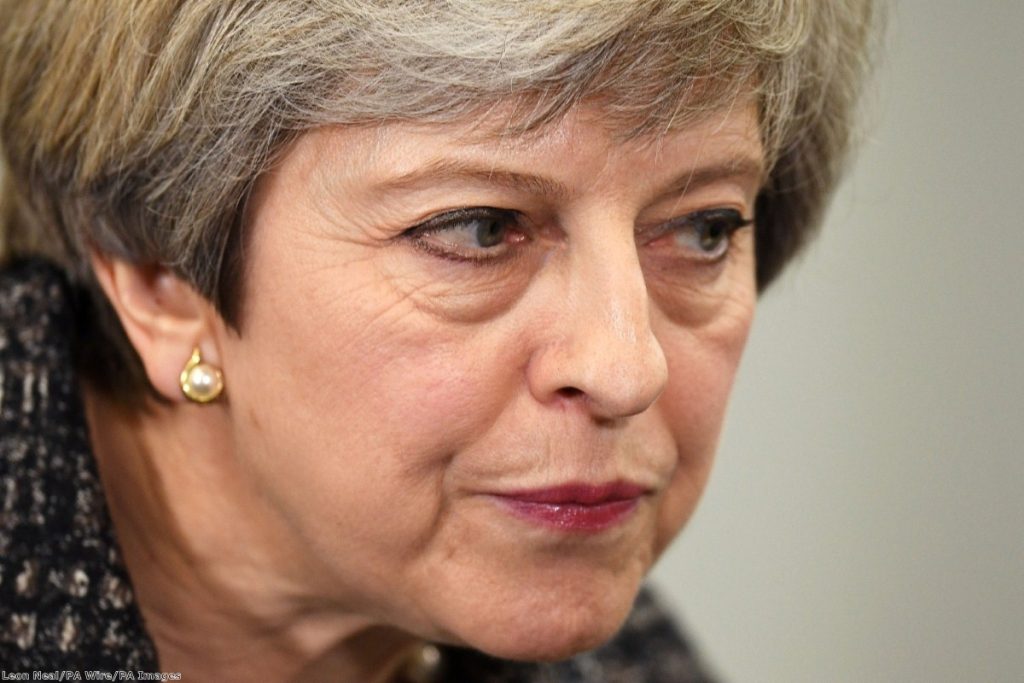By Natalie Bloomer and Samir Jeraj
Five years ago, then-home secretary Theresa May said that her aim was to create a "really hostile environment" for undocumented migrants. "What we don't want is a situation where people think that they can come here and overstay because they're able to access everything they need," she said.
She achieved her aim. Today, some of society's most vulnerable people are so afraid of being turned over to the Home Office that they feel unable to access healthcare, find safe accommodation or seek justice for crimes committed against them. And with good reason.
Politics.co.uk previously revealed that the Metropolitan police has been handing over victims and witnesses of crime to the Home Office for immigration enforcement. We have since sent Freedom of Information requests to other major forces, and from the responses we've had back, we now know that Greater Manchester, Northamptonshire, and Suffolk police are all doing the same.



We also recently reported that MPs have been using an immigration enforcement hotline and webpage to tip-off the Home Office about people they encounter, either in their constituency work or their day-to-day life.
The document that revealed this information also gives a breakdown of all other immigration related tip-offs the Home Office received over a three year period. It shows that, while the overall number of reports has remained at around the same level, those coming from government departments and public sector organisations soared between 2014 and 2016.
Tip-offs from the police shot up from 634 in 2014 to 3,372 the following year. Reports from the DWP increased from 171 to 1,377 over the same period, and a category listed as 'other government departments' shows a leap from 929 cases in 2014 to 4,717 in 2015, rising again to 5,211 in 2016. The Home Office has confirmed that this category would include reports from schools and universities, the prison service and local authorities.
It's not just tip-offs which are helping to create May's desired 'hostile environment'. Recent reports have shown that data from some schools and hospitals has been shared with the Home Office and that information collected by homelessness charities about rough sleepers has also been passed on.
Even driving a car can now lead to people being picked up for deportation. The Home Office regularly shares information with the Driver and Vehicle Licencing Agency (DVLA) which is then compared with that held in its database. In each case, the DVLA provides a result to allow the Home Office to decide whether further action is necessary. The DVLA has confirmed to Politics.co.uk that in just six months – between August 1st 2016 to January 31st 2017 – such information was processed on 54,874 occasions.

And then there's housing. The government's 'right to rent' scheme, which forces landlords to carry out document checks to see if potential tenants have a right to be in the UK, has been criticised by charities for causing discrimination. Indeed, a report by the Joint Council for the Welfare of Immigrants found that 51% of landlords asked said the scheme would make them less likely to let a property to foreign nationals.
Supporters of May's crackdown on illegal immigration argue that the people being affected by these policies have broken the law and should be punished. But that ignores the many reasons that people enter or remain in a country illegally and just how vulnerable many of them are.
Donald Trump has faced criticism across the world for his rhetoric and policies on illegal immigration, yet our own government is overseeing a system so cruel and dangerous it could rival anything happening in America.
The creation of a hostile environment may be an effective way to catch undocumented migrants – although even that is unproven – but it is a profoundly ineffective way of running public services.
When victims or witnesses of crime are too afraid to report an offence to the police, criminals run free and can strike with impunity. When a sick person is too afraid to go to a doctor, diseases can spread without intervention and put the rest of the public at risk. When MPs' constituents are too afraid to go to their surgeries, they lose touch with what is happening in their local area. And when a person is unable to rent a property in the usual way, they create the incentives for a burgeoning black market.
This approach to immigration enforcement also builds the infrastructure of the surveillance state in the day-to-day interactions of millions of ordinary citizens. It is in effect taking immigration enforcement out of the hands of the Home Office and putting it into the hands of everyone else – often with a requirement that they enforce it or face criminal penalties themselves. This is a political project which is turning neighbour against neighbour and degrading the trust required to keep a healthy society operating.
May wanted to make life as difficult as possible for undocumented migrants, regardless of the consequences. She succeeded.
In the coming weeks, Politics.co.uk will take an in-depth look at the impact of the hostile environment and how it is affecting the most vulnerable people in Britain. If you have a story to tell please contact us at: natalie.bloomer@politics.co.uk.
Natalie Bloomer is a journalist for Politics.co.uk. You can follow her on Twitter here. Samir Jeraj is a freelance journalist. You can follow him on Twitter here.
The opinions in politics.co.uk's Comment and Analysis section are those of the author and are no reflection of the views of the website or its owners.









